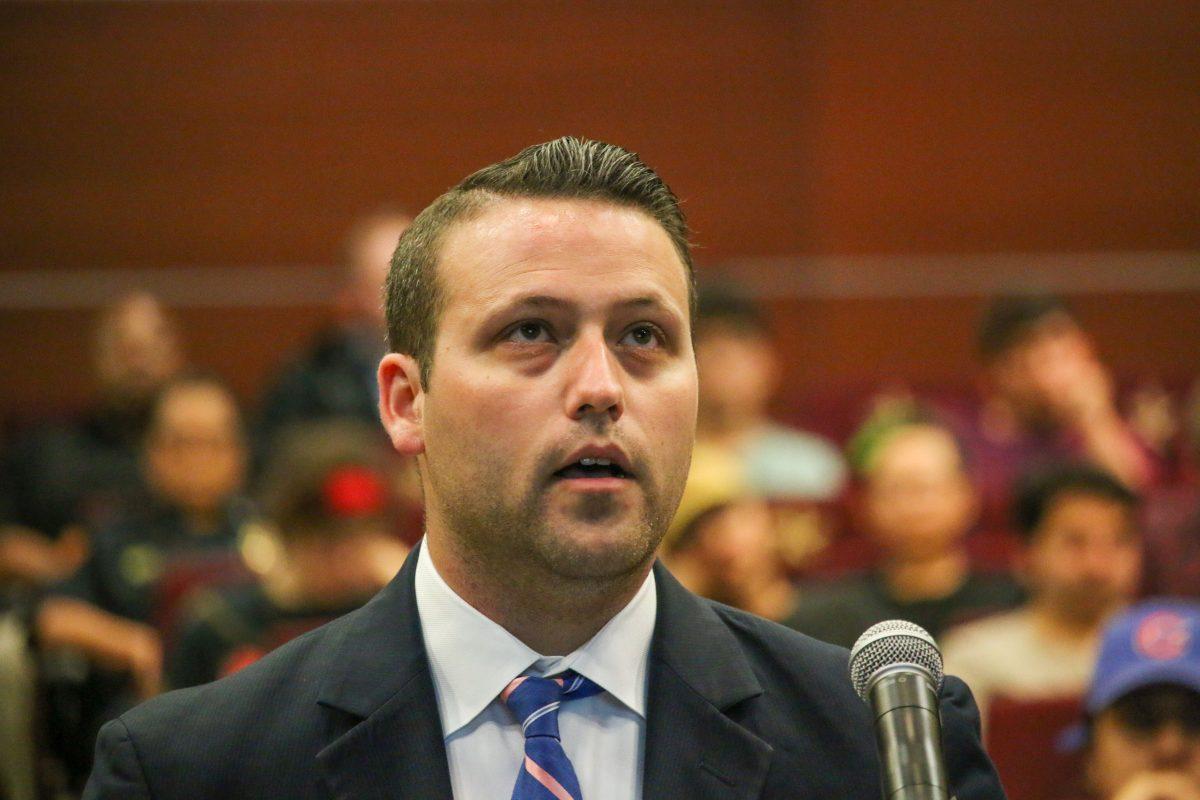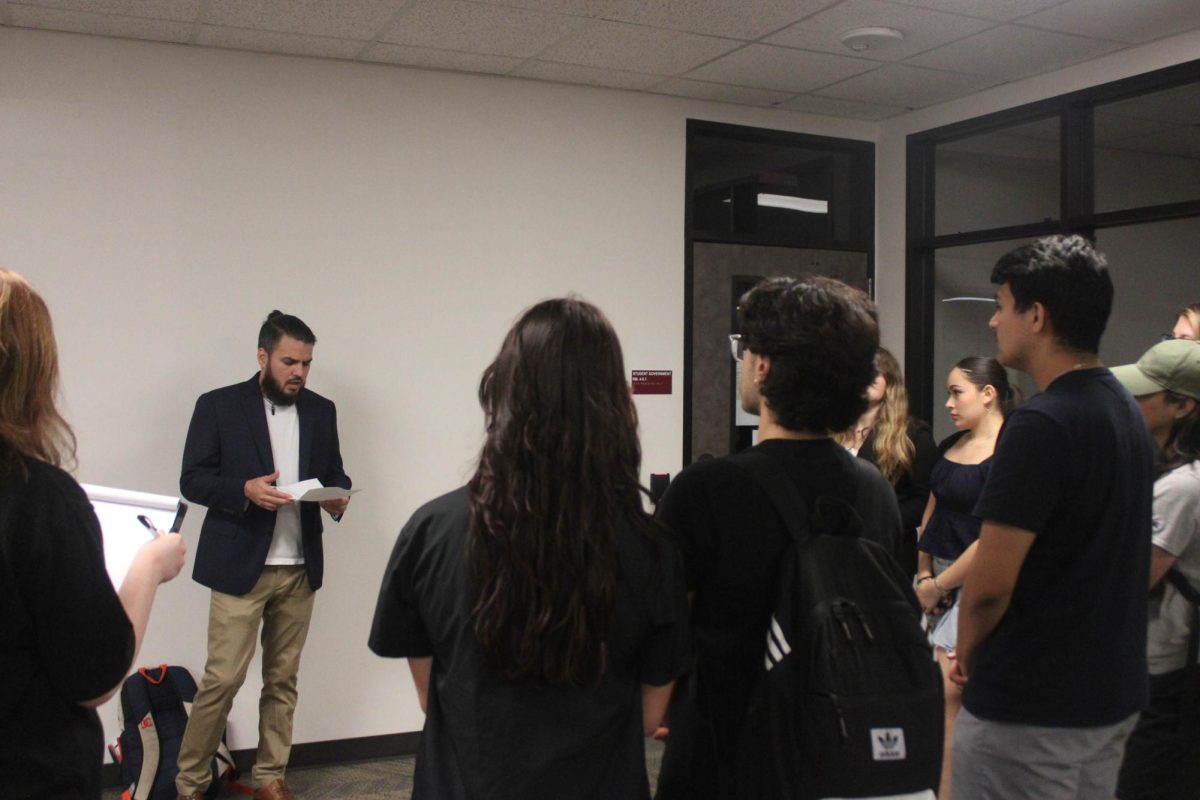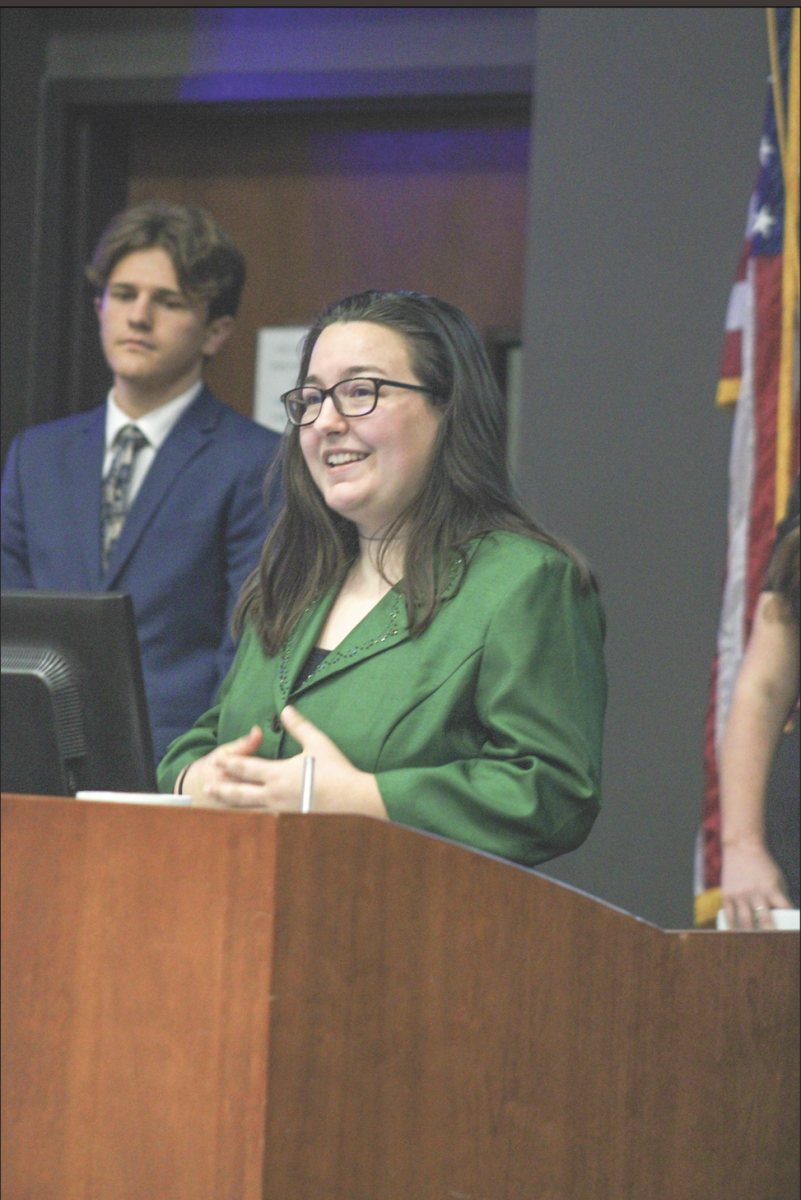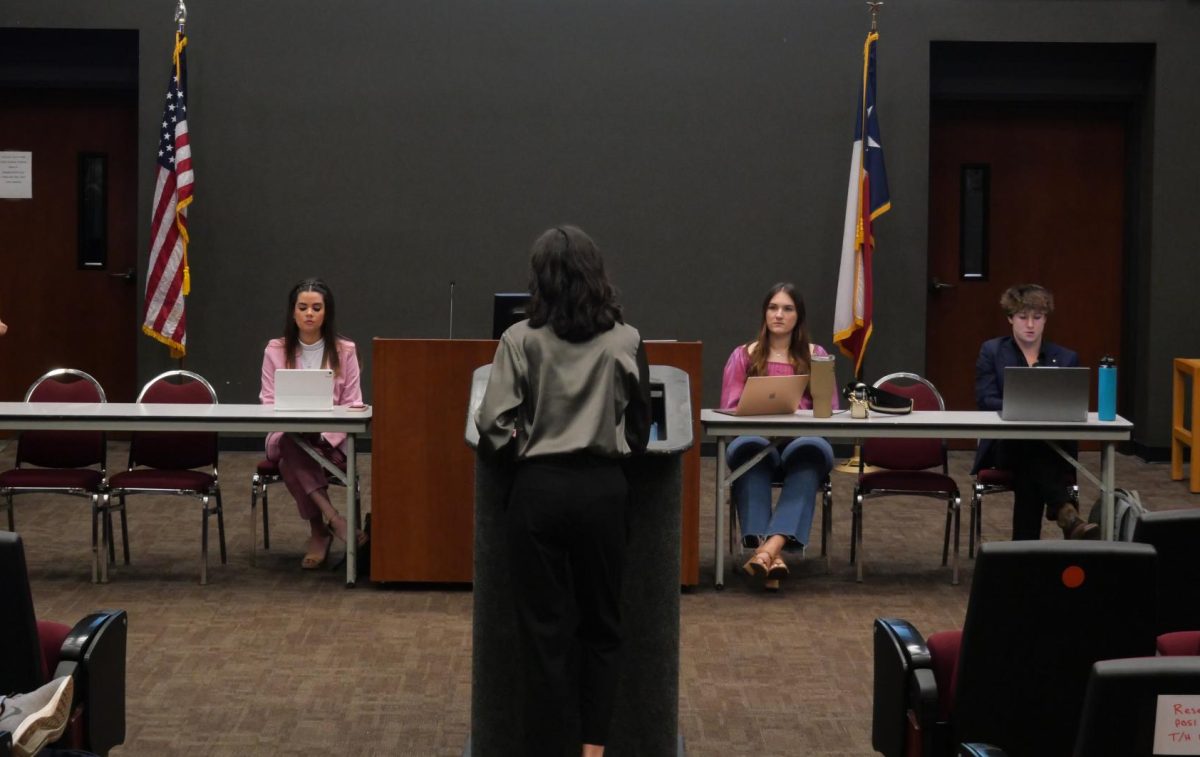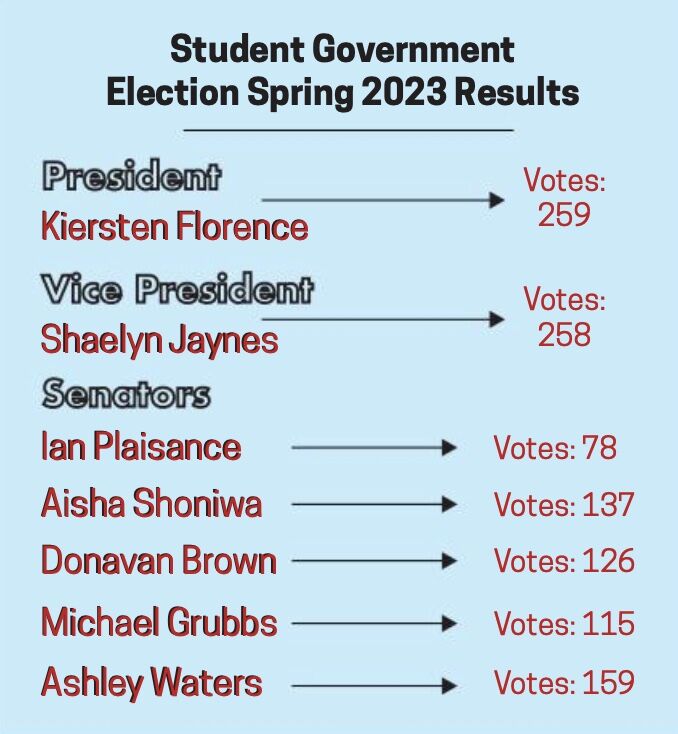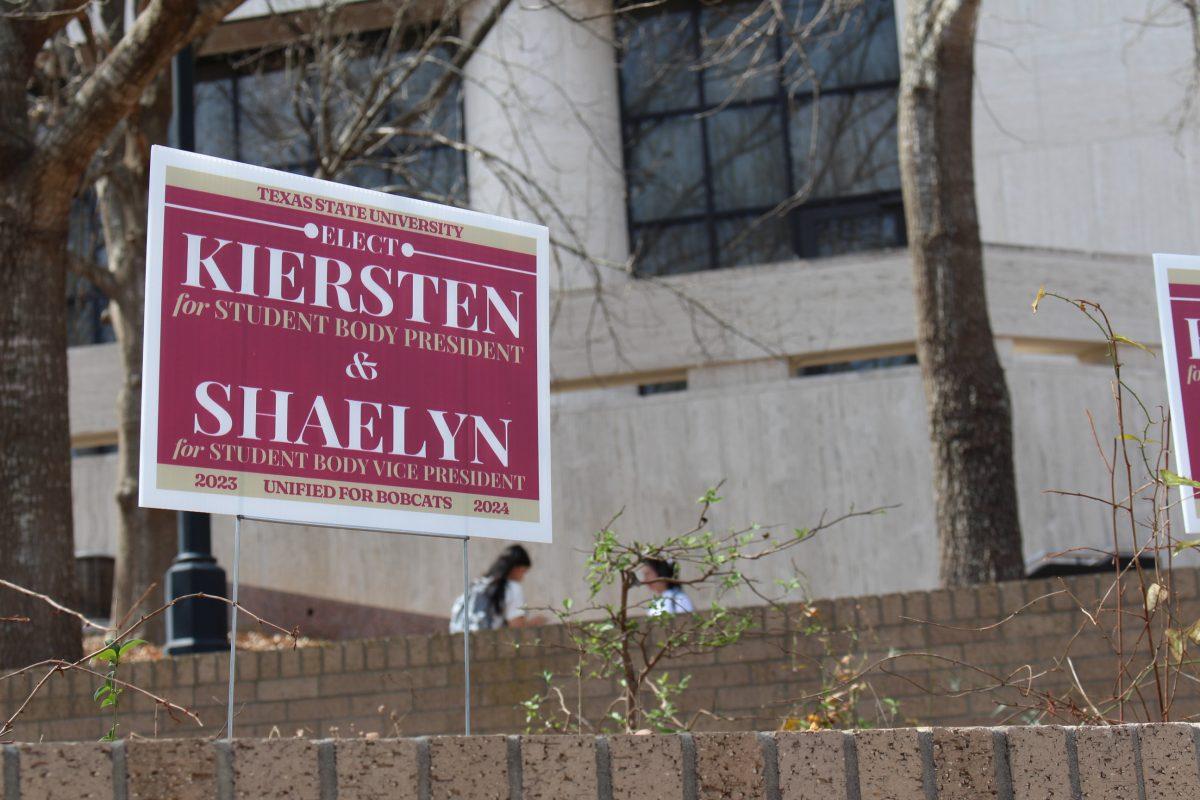A vote-of-no-confidence resolution drafted by Student Government senator Michael Smith to remove Cody DeSalvo from his office of parliamentarian passed by a vote of 14-13-2 at an Oct. 26 meeting.
Vice President Andrew Florence, per his duty as chair, broke the 13-13 tie in favor of the resolution and the removal of DeSalvo from office. Senators Kojo Adu-Nyako and Firoz Muhtasim chose to abstain, with Adu-Nyako saying he abstained because he did not want his vote to be “perverted into aligning with a certain side.”
The vote-of-no-confidence follows a complaint filed by DeSalvo against Florence in which DeSalvo claimed the vice president had not forwarded the senate’s meeting attendance records on a weekly basis, as required by the Student Government Code of Laws. Florence says the complaint was “fictitious” and caused him to face possible suspension.
Senators Jordyn Galvan and Patrick Moloney questioned the merits of the resolution before the vote, stating that DeSalvo is the most qualified senator to serve as parliamentarian and was only doing his job per the Code of Laws.
“It just seems like this piece is more obstructionist than really trying to resolve any perceived conflict of interest in the senate,” Moloney said. “If we’re going to react in this specific way to any sort of action to do our jobs well, then it sets a dangerous precedent for any senator, any parliamentarian and senate leaders.”
DeSalvo, in defense of his actions, says he works to keep the promises he made during his campaign as parliamentarian: To be reasonable, fair and to apply the law as it exists.
“As is permitted by our constitution, I submitted a complaint to the supreme court,” DeSalvo said. “Every member of the Student Government has a right when they see a perceived violation of the constitution, whether they reach out or not, they certainly have a right to file a complaint. I reached out and heard nothing.”
DeSalvo says punishing senators for operating within the law may keep senators from properly reporting and acknowledging any potential future misconduct.
Smith alleges the parliamentarian’s complaint to the supreme court was a deliberate effort to turn the senate against the vice president and a result of DeSalvo failing to check for the attendance records on Canvas himself—the same way Senate Leader Quintin Lorenz did after making his public request Oct. 5.
“Cody DeSalvo has been in elections against Andrew Florence,” Smith said. “I think that this lawsuit may very well be about trying to make plays against [the vice president] and create conflict [within the senate].”
Smith says he believes a parliamentarian without a political history with the vice president will enable the senate to finally draft legislation that directly represents the student body.
Attorney General Corey Benbow defended the vice president at the Oct. 19 supreme court hearing. He says two things can be true; DeSalvo, as parliamentarian, didn’t feel he had received statutory compliant records from the vice president and that the vice president believed he met the requirements by uploading the record to Canvas—a miscommunication between the two.
“The action taken by Senator DeSalvo was to get access to records that he thought were incomplete,” Benbow said. “For me personally, as a student first, I don’t know how those things create a conflict of interest…however, I do recognize that it is within the senate’s purview to take any action against any members of their own body that they see fit within the code.”
DeSalvo originally moved to object the motion to adopt the resolution, but in a 14:13:1 vote, the senate moved to read and vote on it during the Oct. 26 meeting, effectively vacating the office as the first item of old business.
All senate meetings and hearings are open to the public and can be accessed by visiting the Student Government website.
The University Star will update this story as information is made available.
Student Government parliamentarian removed from office
October 26, 2020
A file photo of former Student Government Parliamentarian Cody DeSalvo. DeSalvo was removed from his office after Vice President Andrew Florence broke a tie on a vote-of-no-confidence resolution, Monday, Oct. 26, 2020, in a senate meeting.
Donate to The University Star
Your donation will support the student journalists of Texas State University. Your contribution will allow us to purchase equipment and cover our annual website hosting costs.











